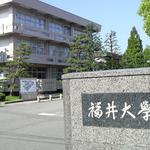Introduction to the University of Fukui (UF)
Overview
The University of Fukui is a national university located in Fukui City, Fukui Prefecture, Japan. It was founded in 1873 and officially opened university education in 1949. The school is known for its high-quality education and rich academic resources. It is an important education and research institution in the Hokuriku region of Japan. The University of Fukui is committed to cultivating talents with high professionalism and innovation capabilities and contributing to the development of society.
Campus
The main campus of the University of Fukui is located in Bunkyo, Fukui City. The specific address is as follows:
Bunkyo Campus: 3-9-1 Bunkyo, Fukui City, Fukui Prefecture
Educational Philosophy
The University of Fukui adheres to the educational philosophy of "a university that contributes to the region and opens to the world" (a university that contributes to the region and faces the world), emphasizing the cultivation of students' independent thinking and practical abilities. The school is committed to cultivating high-quality talents with professional knowledge and practical ability through a comprehensive education system, and to contributing to the development of society.
Disciplines and Majors
The University of Fukui has multiple faculties and graduate schools covering a wide range of fields:
Department of Regional Sciences
School Education Course: Learn basic theories and practical methods such as pedagogy and educational psychology, and cultivate professional talents who can work in the fields of primary and secondary education, educational administration, etc.
Regional Culture Course: Learn basic theories and practical methods such as cultural studies and sociology, and cultivate professional talents who can work in the fields of cultural promotion and community services.
Regional Society Course: Learn basic theories and practical methods such as social policies and public administration, and cultivate professional talents who can work in the fields of public administration and community services.
Department of Medicine
Department of Medicine: Learn basic theories and practical methods such as basic medicine and clinical medicine, and cultivate professional doctors who can work in hospitals, clinics, etc.
Department of Nursing: Learn basic theories and practical methods such as nursing and clinical nursing, and cultivate professional nurses who can work in hospitals, nursing institutions, etc.
Department of Engineering
Department of Mechanical Engineering: Learn basic theories and practical methods such as mechanical engineering and materials science, and cultivate professional talents who can work in the fields of mechanical manufacturing and materials science.
Department of Electrical, Electronics and Information Engineering: Learn basic theories and practical methods of electrical engineering, information science, etc., and cultivate professionals who can work in the fields of electrical engineering, information technology, etc.
Department of Environmental Engineering: Learn basic theories and practical methods of environmental science, environmental engineering, etc., and cultivate professionals who can work in the fields of environmental protection, resource utilization, etc.
Department of Bioengineering: Learn basic theories and practical methods of biotechnology, life science, etc., and cultivate professionals who can work in the fields of biotechnology, pharmaceutical research and development, etc.
Graduate School (Graduate School)
Graduate School of Regional Sciences: Provides master's and doctoral courses in school education, regional culture, regional society, etc.
Graduate School of Medicine: Provides master's and doctoral courses in medicine, nursing, etc.
Graduate School of Engineering: Provides master's and doctoral courses in mechanical engineering, electrical, electronic and information engineering, environmental engineering, life engineering, etc.
Specialized Courses
School Education Course: Learn basic theories and practical methods of pedagogy, educational psychology, curriculum design, etc.
Regional Culture Course: Learn basic theories and practical methods of cultural studies, sociology, history, etc.
Regional social courses: learn basic theories and practical methods such as social policy, public administration, and community development.
Medical science: learn basic theories and practical methods such as basic medicine, anatomy, physiology, pathology, and clinical medicine.
Nursing: learn basic theories and practical methods such as nursing, clinical nursing, and health management.
Mechanical engineering: learn basic theories and practical methods such as mechanical engineering, materials science, and robotics.
Electrical and electronic information engineering: learn basic theories and practical methods such as electrical engineering, information science, and embedded systems.
Environmental engineering: learn basic theories and practical methods such as environmental science, environmental engineering, and resource management.
Life science engineering: learn basic theories and practical methods such as biotechnology, life science, and pharmaceutical research and development.
Practical teaching
The University of Fukui attaches great importance to practical teaching, and has advanced laboratories and practice bases, providing students with rich practical teaching resources. The school has established cooperative relationships with many companies and research institutions, providing students with rich internship and practice opportunities. The school also has practical platforms such as laboratories, studios, and practice bases, providing students with a platform for actual operation.
International Exchange
The University of Fukui actively participates in international exchange programs and has established cooperative relationships with universities in many countries to provide students with opportunities to study and exchange abroad. The school has an International Student Office to provide comprehensive support and services to international students. The school also has English intensive courses and international exchange student programs to help students improve their English proficiency and international competitiveness.
Employment Situation
The University of Fukui performs well in terms of employment rate. According to the latest statistics, the employment rate of graduates is relatively high. The school has a career guidance center to provide students with employment consultation, resume writing guidance and interview skills training to help students find employment smoothly.
Cost
Admission fee: about 200,000 yen
Tuition:
About 535,800 yen per year (depending on different departments and subjects)
The specific fees may vary. It is recommended to consult the school directly for the latest information.
Campus
The campus of the University of Fukui has a beautiful environment and complete facilities, including modern teaching buildings, laboratories, libraries and sports facilities. The school also has student dormitories to provide convenient living conditions for out-of-town students.
Contact Information
Tel: +81-776-21-1111
Fax: +81-776-21-1112
Email: info@u-fukui.ac.jp
Other Information
Internship Opportunities: The school has established cooperative relationships with many companies and research institutions, providing students with abundant internship and practice opportunities.
Employment Support: The school has a career guidance center to provide students with employment consultation, resume writing guidance, interview skills training and other services to help students find employment smoothly.
Scholarship System: The school has a variety of scholarship systems to help students reduce their financial burden.
-
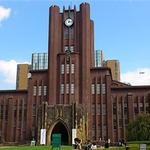
The University of Tokyo
-
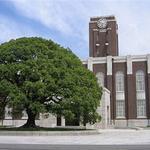
Kyoto University
-
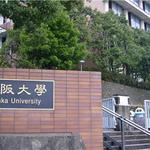
Osaka University
-
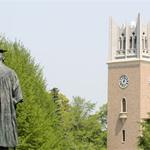
Waseda University
-

Hitotsubashi University
-
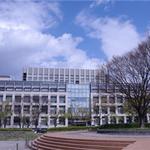
Nagoya University
-
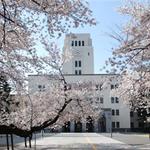
Tokyo Institute of Technology
-
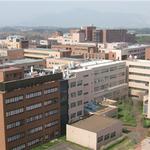
University of Tsukuba
-
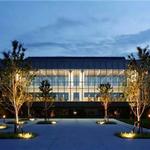
Keio University
-
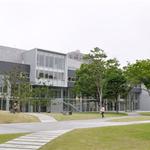
Tohoku University
-

Mesoamerican University
-

Istmo University
-

Mariano Galvez University of Guatemala
-

Regional University of Guatemala
-

Galileo University
-

Francisco Marroquín University
-

Rafael Landívar University
-

University of the Valley of Guatemala
-

University of San Carlos of Guatemala
-

Technological Institute of Tlaxcala Plateau
-

Golfo University
-

Technological University of South Sonora
-

Technological University of Huejotzingo
-

Tizimín Institute of Technology
-

Chilpancingo Institute of Technology

